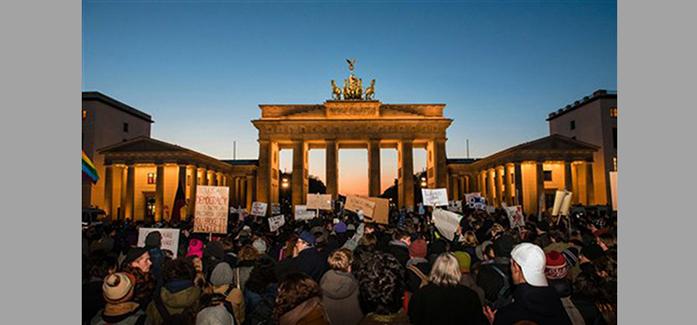Immediately following Donald Trump’s victory in the presidential election, world leaders were quick to respond with messages of support, whether strong or skeptical.
Where the U.S. is typically seen as a rival, the support was a bit more solid. President Vladimir Putin of Russia, just hours after Trump’s victory, said he looked forward to constructive dialogue and restoring relations between the two nations. Chinese President Xi Jinping echoed those thoughts.
Though elsewhere, certain international anxieties were aired alongside support. In wake of the election, Jean-Marc Ayrault, the former prime minister and current foreign minister of France, asked, “What will become of the Paris agreement on the climate, of the nuclear deal with Iran that Donald Trump wants to reconsider?”
But regardless of the individual leaders’ differing politics, each message put forth was, at its core, one of persistence, strength through unity, and the maintenance of common values held by all forward-thinking nations.
Angela Merkel, the chancellor of Germany widely known for her amazing willingness to accept hundreds of thousands of refugees, did not support Trump. Trump’s outright denial of the importance of accepting refugees and his overwhelmingly xenophobic views of the world are in direct opposition of Merkel’s political stances. Yet when she addressed the public following Trump’s election, there may have been an undertone of disapproval but the content of her speech was of a hopeful future.
In her speech, Merkel noted that “Germany and America are connected by common values: democracy, freedom, respect for the law and for human dignity irrespective of origin, skin color, religion, gender, sexual orientation, or political conviction. On the basis of these values, I offer the future president of America, Donald Trump, a close working relationship.”
It is clear that Merkel has taken note of the vitriol Trump spewed during his campaign. Although she never offers her support for Trump’s rhetoric, she at least offers her close conditional working relationship, because the world depends on it. As long as Trump respects the shared values between Germany and the U.S., she has no choice other than some degree of cooperation with Trump.
Merkel said, “Partnership with the USA remains a basic pillar of German foreign policy in order for us to meet the great challenges of our time: striving for economic and social well-being and a forward-looking climate policy, the fight against terrorism, hunger, and disease, engagement for peace and freedom, in Germany, Europe, and all over the world.”
Peaceful protests have merits. Showing your opinions, your stance, and your passions through peaceful gatherings can be very powerful. But this momentum must be shifted from the symbolic to the pragmatic. Just as Merkel denounces Trump’s political ideology, she has also come to sensible realization that she must work with, rather than against, his administration.
Barring a massively improbable occurrence, Trump will be the next president of the United States. So rather than protesting in the hopes of preventing this certainty, individuals with strong values in contention with everything Trump has come to represent ought to shift their attention toward working with organizations that are fighting against the frightening aspects of Trump’s campaign.



